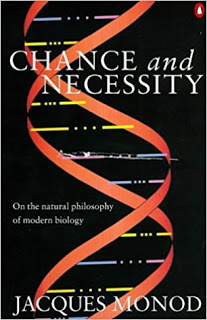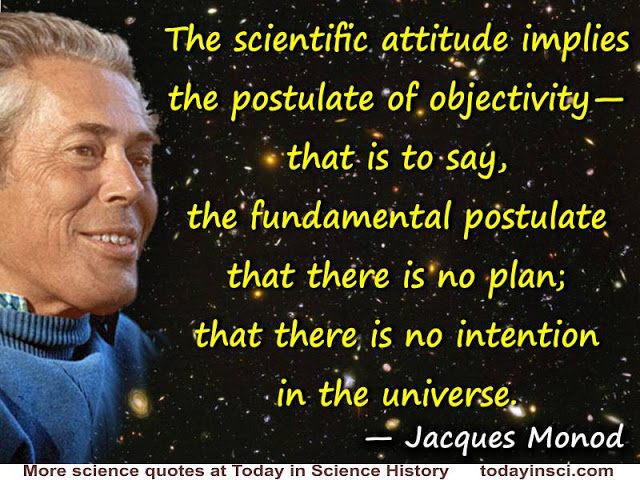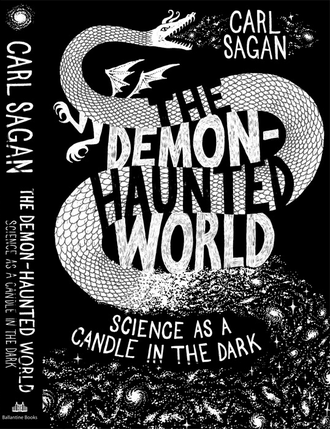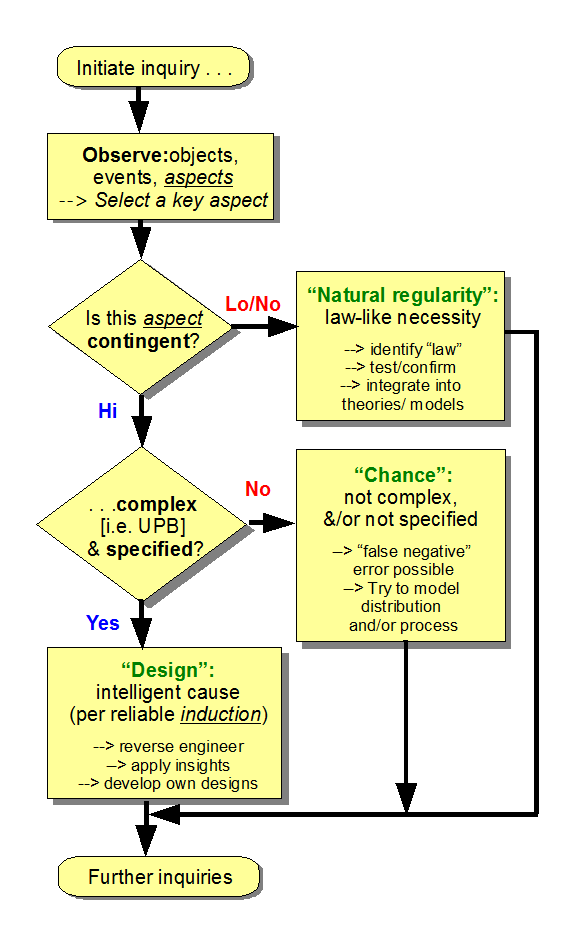
Jacques Monod won a Nobel Prize in 1965 for work on the mechanism of genetic replication and protein synthesis. By 1970 – 71, he published a pivotal book, known in English as Chance and Necessity, which is a part of the context in which Design Thinkers have argued that no, intelligently directed configuration, design, is a third relevant factor.
In writing about naturalistic origins of life, in Chance and Necessity, Monod proposed that life is the result of chance and necessity. This reflects the naturalistic attitude noted in our headline, and is tied to the a priori rejection of design as a possibility; yes, an assumption held to be pivotal to scientific “objectivity.”
Clipping:
[T]he basic premise of the scientific method, . . . [is] that nature is objective and not projective [= a project of an agent]. Hence it is through reference to our own activity, con-scious and projective, intentional and purposive-it is as | makers of artifacts-that we judge of a given object’s
“naturalness” or “artificialness.” [pp. 3 – 4] . . . . [T]he postulate of objectivity is consubstantial with science: it has guided the whole of its prodigious develop-ment for three centuries. There is no way to be rid of it, even tentatively or in a limited area, without departing from the domain of science itself. [p. 21]
Further to such, in a 1971 television interview, he asserted — tellingly — as follows:
[T]he scientific attitude implies what I call the postulate of objectivity—that is to say, the fundamental postulate that there is no plan, that there is no intention in the universe. Now, this is basically incompatible with virtually all the religious or metaphysical systems whatever, all of which try to show that there is some sort of harmony between man and the universe and that man is a product—predictable if not indispensable—of the evolution of the universe.— Jacques Monod [Quoted in John C. Hess, ‘French Nobel Biologist Says World Based On Chance’, New York Times (15 Mar 1971), p. 6. Cited in Herbert Marcuse, Counter-Revolution and Revolt (1972), p. 66.]
This is so pivotal, that we will use an infographic of the money shot clip:

This should ring alarm bells, as a case of grand worldviews level question begging that, ahead of investigations, imposes naturalistic, evolutionary materialistic scientism — atheism dressed up in the lab coat — as the very definition of scientific objectivity. Which, is of course, anything but objective.

The late Philip Johnson’s reply to Richard Lewontin’s 1997 NYRB article, Billions and Billions of Demons, is apt:
For scientific materialists the materialism comes first; the science comes thereafter. [Emphasis original] We might more accurately term them “materialists employing science.” And if materialism is true, then some materialistic theory of evolution has to be true simply as a matter of logical deduction, regardless of the evidence.
That theory will necessarily be at least roughly like neo-Darwinism, in that it will have to involve some combination of random changes and law-like processes capable of producing complicated organisms that (in Dawkins’ words) “give the appearance of having been designed for a purpose.” . . . .
The debate about creation and evolution is not deadlocked . . . Biblical literalism is not the issue. The issue is whether materialism and rationality are the same thing. Darwinism is based on an a priori commitment to materialism, not on a philosophically neutral assessment of the evidence. Separate the philosophy from the science, and the proud tower collapses. [Emphasis added.] [The Unraveling of Scientific Materialism, First Things, 77 (Nov. 1997), pp. 22 – 25.]
Let us ponder the matter. END
PS: For record, let me note on what the design inference (summarised in a per aspect explanatory filter) actually does:

As in, no, it does not impose design as a default inference, indeed, there are two defaults that capture chance and/or necessity.